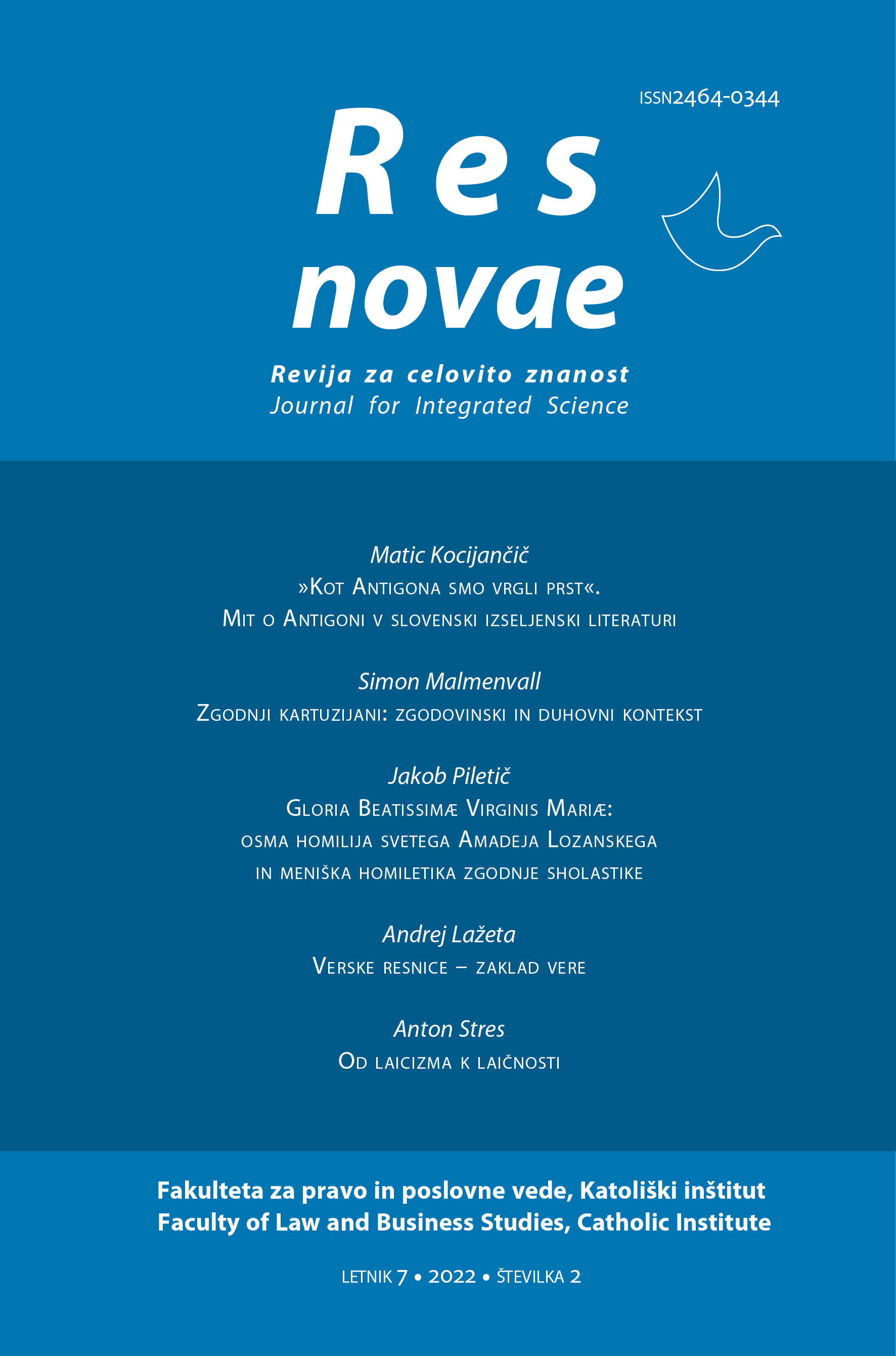Gloria Beatissimae Virginis Mariae: Eight Homilies of Saint Amadeus of Lausanne and Monastic Homiletics of Early Scholasticism
Jakob Piletič
Gloria Beatissimae Virginis Mariae: Eight Homilies of Saint Amadeus of Lausanne and Monastic Homiletics of Early Scholasticism
DOI: https://doi.org/10.62983/rn2865.22b.3
Key words: Blessed Virgin Mary, Amadeus of Lausanne, High Meddle Ages, scholasticism, homiletics, monasticism
Abstract:
Saint Amadeus of Lausanne, monastic author of the High Middle Ages, is generally regarded in the tradition of the Latin Church as the author of eight homilies in which he extols the virtues, life and ultimately the glory of the Blessed Virgin Mary. Despite the seemingly light-hearted style, these homilies have a well-thought-out internal structure, their content is adapted to individual periods of the liturgical year, and we can recognize in them the first extensions of scholastic thinking which is clearly indicated by the subliminal central theme of homilies – the Seven Gifts of the Holy Spirit. His homilies are therefore also important from a literary critical point of view as they represent an original transition between strictly exegetical homiletics, as is especially characteristic of patristic authors, and the later scholastic tradition. Homilies are at the same time a valuable source of understanding and ways of veneration of the Blessed Virgin Mary in the High Middle Ages.
PDF



